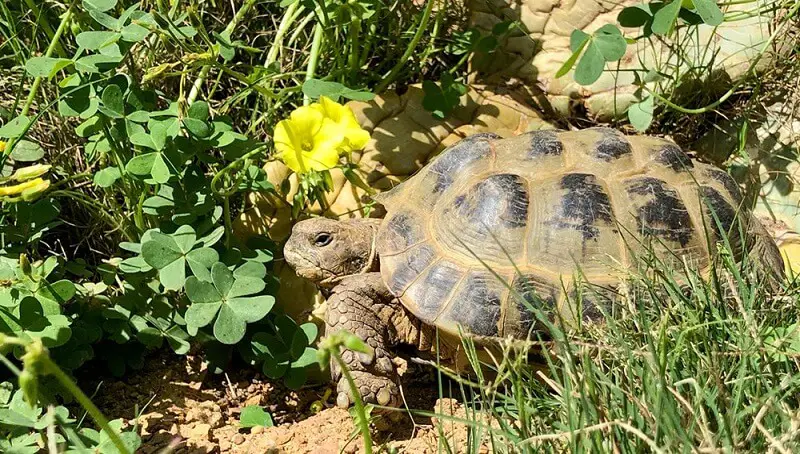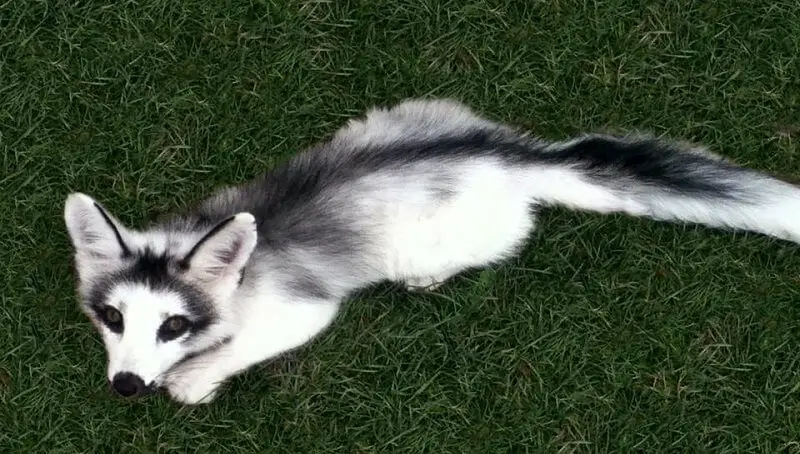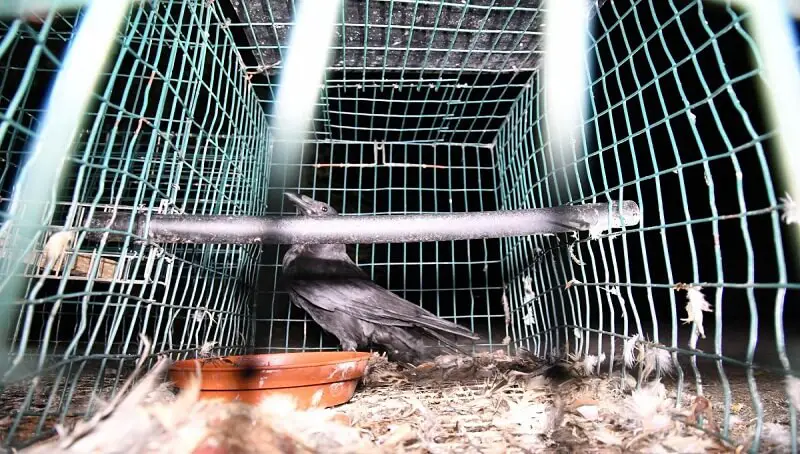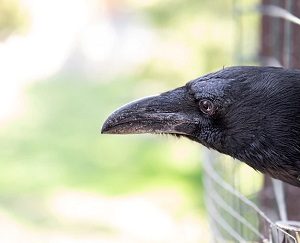
Russian Tortoise Life Span – How Much Do They Live?
May 20, 2022
Marble Fox as a Pet
May 22, 2022
If you really like crows and always like to watch them fly and socialize, then you will surely consider getting one as a pet at one point. But before looking for one, let’s stop for a minute and see whether or not Crows and ravens actually make good pets or not. You surely understand that you won’t be able to treat a raven or a crow the say way how you would treat parrots, dogs, and cats, especially because these are wild birds. However, to help you make a clearer decision, I have listed below the pros and cons of owning a crow as a pet.
Pretty beautiful, sun-loving birds
To fulfill their vitamin D needs, crows will usually like to sunbathe, according to scientists.
Crows are pretty common and you will see them around you a lot, even in areas highly populated by humans. They are known to steal food from other birds, but also from animals around them. They are a big part of the whole corvidae family. In fact, thirty percent of all creatures in the corvidae family will be from the crow genus. Although they can be found all around Europe, North America, Australia, and Africa, they are believed to have come from Central Asia. They will usually live to around 20 years old but the oldest known specimen was an American crow that is said to have lived around 30 years in the wild. Although crows look very similar to ravens and some people will have a hard time knowing which is which, they are very different and in fact, have very few similarities.
You might also like my articles on vultures, emus, and kiwis.
Before you get a crow as a pet, check out your state’s laws, to make sure you are actually allowed to do so. Crows are considered wild animals, so a lot of countries, along with some US states, will not allow keeping them as pets. States that do allow you to keep this bird as a pet will have some stringent laws and regulations around this creature. You should also know that the lifespan of these creatures in captivity will be a lot shorter than in the wild, so don’t get one only to keep up with the trend. Most people like these birds and want them as pets because they are very intelligent. A downside of their social nature is that when kept in captivity, they will become pretty agitated. Below you will find some facts that will make the decision of whether you should get a crow as a pet or not a lot easier.
It is illegal to keep them as pets
Crows, along with ravens, are considered migratory birds and are protected by the Migratory Bird Act, of 1918. Anyone found harming crows or their nests or keeping them captive can be punished under the extent of the law. You can still own one in some states, but you will usually require a federal permit to do so, and getting one will prove to be quite difficult. It will be a lot easier to keep one in captivity if you’re using it for educational purposes or are part of a rehabilitation center.
They need a lot of attention and care
Although they seem pretty relaxed while in the wild, you shouldn’t expect to get one and just keep it in a cage, without giving it too much attention. Getting just a small birdcage from a local pet store just won’t do for these particular birds. They are pretty different from parrots in this sense and will feel trapped. They also don’t use their beaks and feet to climb the cage. While free, they will fly from one pole to another so they would need the same ample space while in captivity as well. So, if getting a crow as a pet is a must, then you will have to consider getting an outdoor aviary of decent size, to give them the necessary space to spread their wings, while also protecting them from any predators.
They may develop dementia
 Crows and all their relatives from the corvidae family are known to be among the smartest animals in the world. Crows will not only learn a lot of things pretty quickly, but they might even get to the point where they are able to use different tools. They will also learn to use some tricks when looking for food. Their intelligence will be to their detriment while in captivity, because too much time spent in a cage would usually have them go insane within a few weeks to months. This is because they will have nothing to entertain their brain with and no place where they can fly.
Crows and all their relatives from the corvidae family are known to be among the smartest animals in the world. Crows will not only learn a lot of things pretty quickly, but they might even get to the point where they are able to use different tools. They will also learn to use some tricks when looking for food. Their intelligence will be to their detriment while in captivity, because too much time spent in a cage would usually have them go insane within a few weeks to months. This is because they will have nothing to entertain their brain with and no place where they can fly.
Feeding a crow will be time-consuming and expensive
Crows will like to eat a combination of vegetables and meat, which makes them omnivorous. In the wild, they like to stock up on food, to rely on it in case of emergency. When you keep one as a pet, you will have to figure out a diet that is as close as possible to what the bird would eat in the wild. To keep them healthy and make sure they get all the needed vitamins and nutrients, you will have to feed them a variety of different foods and vegetables.
They are wild at heart
You should always keep in mind that they have a wild personality and are not domesticated animals. They will usually challenge the authority of their master, especially after they reach adulthood. If you let them out of their cage and in your home, they will damage anything they can land their claws on, including bed sheets, draperies, furniture, and couches. They are social by nature and will need all your attention and frequent stimulation. They can even get depressed if you leave them alone for a longer time.
Family bond
As I said before, they are considered very social. They will have to socialize a lot with other crows, especially from their family. If they fail to do so, other members of the family will shun them away. If they are kept away from their family members for too long, they won’t be able to return to the wild, so they will become your responsibility until they pass away.
Conclusion
These are just some of the reasons why I don’t recommend you to get a crow as a pet. On the upside, they are beautiful and have a glossy, feathery look, they are really intelligent and will learn tricks pretty quickly, but these reasons alone are not enough to take them from the wild and throw them in a cage. If being close to crows is really important for you, then you can always join a rehabilitation center, where you can learn a lot about their behavior.
